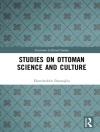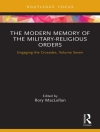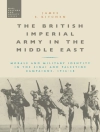Shiling Mc Quaide taught history at Athabasca University AB Canada until 2014. Now she resides in Vancouver Island, BC. Ms. Mc Quaide was educated both in China and Canada. She earned BA and MA degrees from Beijing University and Beijing Normal Universities respectively; she received her Ph D from Queens‘ University, Kinston, On. Canada. A trained historian, Dr. Mc Quaide taught courses in Chinese History, Asian History, and World History. Her research work focuses on China, broadly covering several areas of Chinese labour, women, and education. Her scholarship mainly appeared in English journals, including several papers on distance learning programs implemented to universalize education in rural China and historiographical discussion of labour studies in China. She also studied and published on Beijing waitresses in the 1930s and sex workers during the post-reformist era. Revolutionary Intellectuals and the Chinese Communist Party: Radical Education during the Rising Age of Communism in China from 1920 to 1949 provides an analytical survey of the Communist education and propaganda programs from 1920 to 1949. Four parts constitute the book, covering various periods of the Communist revolution. Part One deals with the early years of the Communist Party (1920-1927), when revolutionary intellectuals endeavoured to publish labour journals, formed workers‘ schools, and set up cadre training sites in metropolitan centres and industrial towns. Part Two discusses Jiangxi Era (1929-1934), during which the party leaders launched experimental projects to build an education structure strikingly different from modern bourgeois schooling systems. Part Three centres on the Yan’an decade (1937-1945), in which the Communist higher learning institutions are elaborated, mass education in Shaan-Gan-Ning border region is surveyed, and the contention between Maoist reformers and professional educators is tackled. The last part of the book observes the Civil War Years, a period that began with ferocious warfare, but ended in a twilight of peace. By late 1948, regularization attempts had terminated the chaotic situation to dominate Communist schools in which the descendants of the labouring classes are now enrolled. This work looks at the changing relation between revolutionary intellectuals and the Communist party through the prism of the party’s radical education, an area that is not clearly charted and well explored in the English-speaking world. In the early years of the revolution, although the party’s painstaking propaganda efforts invigorated labour activism and militancy, its inflammatory messages contained paradoxes and discrepancies, the seeds leading to intellectuals‘ degradation. By 1926 and 1927, harsh criticism of the educated people culminated into a policy to proletarianize the vanguard organization, turning intellectuals, and the indispensable force of education into "suspicious elements". The same policy line went through the entire Jingxi Era. Making "use of heretofore little-known publications of archival materials", this book "shows how campaign-style politics and suspicion of intellectuals were already present in those early years" (Michael Szonyi). The Yan’an decade is represented as a significant new phase of the party-intellectual relation as the party leader Mao Zedong not only eagerly enlisted and rewarded intellectuals‘ service, but also imposed ideological and organizational conformity on his educated subordinates. Overall, "this is a defiantly brave book", which deals with "a politically charged subject such as political education". "Scholars will find in her account much with which they may disagree". "(T)his is a book to learn from" (Bryan Palmer).Target Audience:This book appeals to three groups of readers. It will be interest to academic specialists and students who study modern Chinese history, especially China’s communist revolution. It will also attract attention from adult educators and students because this work provides extensive discussions on learning programs, teaching pedagogy and instruction tactics initiated by the CCP educators as well as on radical education reforms introduced by the party leaders. In addition, it may become an appealing book for ordinary readers because of its exploration of the paradoxical relations between the CCP and China’s intelligentsia. Books on Chinese communist revolution and intellectuals are often selected as university textbooks for upper level undergraduate courses and graduate courses. When increasing universities in North America are developing courses in China studies, this book has good potential to be read by university students in history, education, and political science.
Shiling McQuaide
Intellectuals and the Chinese Communist Party [PDF ebook]
Radical Education during the Rising Age of Communism in China from 1920 to 1949
Intellectuals and the Chinese Communist Party [PDF ebook]
Radical Education during the Rising Age of Communism in China from 1920 to 1949
Dieses Ebook kaufen – und ein weitere GRATIS erhalten!
Format PDF ● Seiten 391 ● ISBN 9781634858557 ● Herausgeber Shiling McQuaide ● Verlag Nova Science Publishers ● Erscheinungsjahr 2016 ● herunterladbar 3 mal ● Währung EUR ● ID 7227089 ● Kopierschutz Adobe DRM
erfordert DRM-fähige Lesetechnologie












